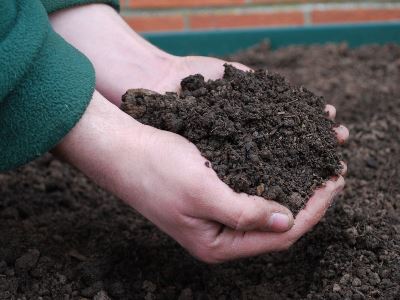This article was reproduced by Builders’ Merchants News in their July/August 2018 Edition.
There is a feeling around the landscape and construction industry that buying a topsoil which comes with a test certificate is all you really need to worry about. However, as with many pieces of understanding, this is very much not the case. To ensure product is not potentially harmful to human health, the environment and plants, buyers need to read the laboratory report that should form part of the certification to check that this has been addressed under the heading ‘Potentially Toxic Elements’. Also, intended end use is key, there is a big difference in the topsoil quality needed for a motorway embankment compared to a family back garden.
For builders’ merchants there are some important issues to consider. What is my level of risk? Am I selling product that is right for my customer base? Do I need to look a little further into this, as the cost of remedial works far outweighs likely savings through purchasing product based on cost per bag?

Builders’ merchants are a significant supplier of British Standard certified (BS3882:2015) topsoil for the construction and landscape industries, for both domestic contracts and new-build developments. While the application of the Standard means the topsoil they provide may meet the minimum requirements laid down by it, there are some topsoil manufacturers which would like to see more rigorous checks being brought into force.
“Each development will present its own challenges in terms of groundworks, topsoils, subsoils, aggregates, clays, flint, the list goes on. For works where topsoil is being imported we feel awareness of the intended end use needs to be more widely considered, especially when it comes to domestic family gardens. This is not just about the safety of families either, it relates to successful landscape schemes with healthy gardens that enrich our living spaces.” Paul Dawson, Managing Director of Rolawn comments.
“We would like to see better understanding of the standards, and how they are policed. We hear too many stories where imported ‘certified’ topsoils have included significant quantities of glass, unwanted plastics, pernicious weed or even toxic elements. But we also understand how difficult it can be to chart a path through complex issues and confusing regulations, especially in a competitive commercial market. But, education around these issues would help builders’ merchants to sell the right product with confidence and contractors to buy with equal surety.”
There are areas where the construction industry could look to improve understanding and Rolawn would like to discuss topsoil standards with organisations such as the NHBC, where their guidelines could be more embracing of good topsoil provision for a more effective landscape outcome. This can then provide landscapers on any development with the suitable topsoil to finalise gardens, outdoor spaces and areas of greenery.
Traceability and provenance are also an area of concern for many in the industry supplying topsoils which meet and exceed the industry standard. An argument exists which confronts how current legislation is policed. A sporting analogy would be where an athlete could store blood or urine prior to taking performance enhancing drugs or blood doping by training at altitude, and then submitting the old sample. The onus is on companies submitting samples for testing to ensure they are consistently supplying samples which are current. If there is no policing of the legislation for topsoil then the legislation itself becomes invalid. Current requirements ask that just every 5000th cubic metre of topsoil produced is tested. Tightened legislation could place additional requirements that add traceability to samples tested. This would also ensure that provenance is noted and the product comes from a sustainable source and environment.
Rolawn gives confidence to builders’ merchants through their in-depth sourcing protocols and extensive testing, with 75 tested and reported parameters, exceeding the requirements for any constructor or landscapers needs, while providing a safe material free from harmful levels of containments and waste.
Builders’ merchants, contractors and landscapers can ask questions of their topsoil supplier to see if the topsoil they are supplying/receiving is right for the project required:
Many other industries and products will add an industry recognised seal such as a red tractor, lion, or other symbol, that verifies the credentials, sustainability and provenance of their products which sit alongside the British Standard accreditation and kitemark. Is now the time to add a new seal of approval to rank alongside the BS3882:2015 accreditation?
Find out more about Rolawn’s safe, certified, responsibly sourced topsoil at www.rolawn.co.uk/topsoil or contact us on 01904 757300.